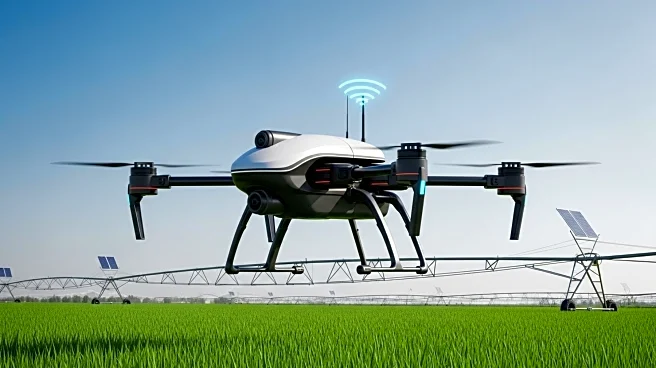What's Happening?
Artificial intelligence (AI) is transforming agriculture in the Gulf Cooperation Council (GCC) countries, including Saudi Arabia and the UAE. AI technologies are being integrated into farming practices to reduce water usage, optimize yields, and enhance crop production in arid environments. Innovations such as AI-based soil analysis, vertical farming, and smart irrigation systems are being employed to improve efficiency and sustainability. These technologies are part of broader national strategies like Vision 2030, aimed at achieving self-sufficiency and food security in the region. The use of AI in agriculture is helping to address challenges posed by climate change and resource scarcity.
Why It's Important?
The adoption of AI in agriculture is crucial for the GCC countries, which face significant challenges due to their arid climates and limited water resources. By optimizing farming practices, AI can help ensure food security and reduce dependency on imports. This technological shift supports the region's economic diversification efforts and aligns with global sustainability goals. The success of AI-driven agriculture could serve as a model for other regions facing similar environmental challenges, highlighting the potential of technology to address critical issues in food production.
What's Next?
As AI technology continues to advance, its application in agriculture is expected to expand further. The GCC countries may invest in additional research and development to enhance AI capabilities and explore new agricultural innovations. Collaboration with international tech companies and research institutions could accelerate progress and lead to more sustainable farming practices. The focus on AI-driven agriculture is likely to increase as climate change impacts become more pronounced, necessitating adaptive strategies to ensure food security.










